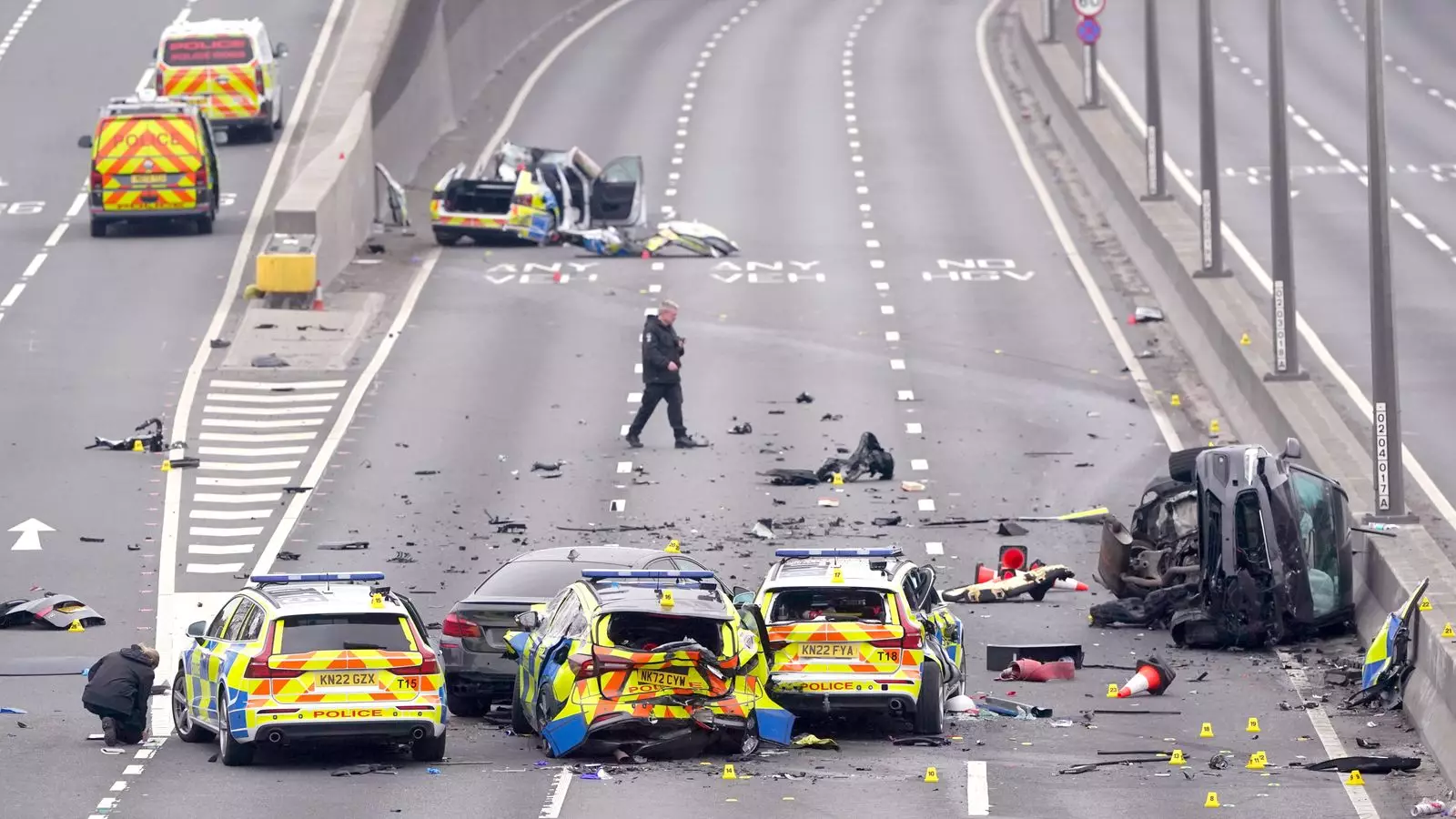In an era where the consequences of reckless driving are well-documented, one would expect a certain degree of caution, especially from those behind the wheel of a high-performance vehicle. Yet, the harrowing incident involving 20-year-old Mazyar Azarbonyad serves as a stark reminder of how narcissism and thrill-seeking can quickly lead to disastrous outcomes. On a seemingly innocuous night in Tyneside, after what was presumably a charming first date, Azarbonyad decided to turn a routine drive into a dangerous escapade, culminating in a catastrophic crash that left seven police officers injured. This case isn’t just another statistic; it’s a vivid illustration of the irresponsible attitudes that sadly permeate our roads.
The Chaotic Reality of Decision-Making
Let’s revisit that night. The feeling of invincibility often accompanies youth, but it’s a fleeting illusion that can lead to dire ramifications. Azarbonyad, driving a robust BMW and already in the spotlight for his erratic driving, was undoubtedly aware that his actions could attract law enforcement’s attention. The prosecutor’s remarks, noting how Azarbonyad “stuck two fingers up” at common sense, capture this reckless spirit. After failing to comply with police signals, he continued his drive with utter disregard for safety, leading to an accident that involved five police vehicles. The sheer chaos of the event, with debris scattered and one police car’s roof torn off, underscores how quickly thrills can devolve into tragedies.
Desperation and Criminal Negligence
Azarbonyad did not just crash that night; he compounded his reckless decisions with subsequent offenses, including driving without insurance and disobeying court orders. It begs the question: what does it take for an individual to finally grasp the gravity of their irresponsible behavior? Defenders of Azarbonyad, claiming he acted out of panic, ignore the fundamental truth that knowledge of the law comes with responsibility. After the incident, he continued to drive—four separate occasions—seemingly immune to the repercussions of his actions. This blatant disregard not only speaks to his character but also raises alarming questions about larger societal issues: Are our laws and the enforcement thereof enough to deter such reckless behavior?
Judicial Response: Is It Enough?
The Court proceedings highlighted Azarbonyad’s admission of guilt and expressions of remorse, yet questions linger. Is remorse enough in a world where split-second decisions can lead to irreversible consequences? His legal representative painted a picture of a man overwhelmed by fear and poor judgment, but what about the officers whose lives were impacted? The notion that he panicked and continued to drive post-crash shows a level of irresponsibility that cannot be easily acquitted with an apology.
While some may argue that Azarbonyad’s admission of guilt should lead to leniency, we must resist this sentiment. The judiciary’s role extends beyond punishment; it’s about creating a legal precedent and ensuring societal safety. A slap on the wrist might send the message that reckless behavior will be tolerated, and that is an outcome we should all vehemently oppose.
The Shadow of Peri-Perilous Driving Culture
In a broader context, cases like Azarbonyad’s reflect a woeful reality: a culture that often romanticizes reckless driving, where speed and bravado are mistakenly equated with bravery. The rise of social media platforms perpetuates this phenomenon, showcasing videos that glamorize dangerous driving in a misguided bid for attention. As responsible citizens, we must interrogate this fascination with danger and consider how we can foster a culture that values safety over recklessness.
Furthermore, communities must demand more from their lawmakers regarding road safety regulations. Fear of losing one’s license or facing jail time should instill genuine apprehension among potential offenders. Programs designed to educate young drivers about responsibility and the life-altering consequences of their actions should be prioritized over punitive measures alone.
In an age where information is abundant and access to mentorship widespread, youth cannot use ignorance as an excuse. Mazyar Azarbonyad’s case should serve as a pivotal turning point not only for him but for society at large. We owe it to ourselves and those around us to cultivate a driving culture that favors accountability over recklessness, ensuring that nights out remain memorable for their beauty—not their calamities.

Leave a Reply